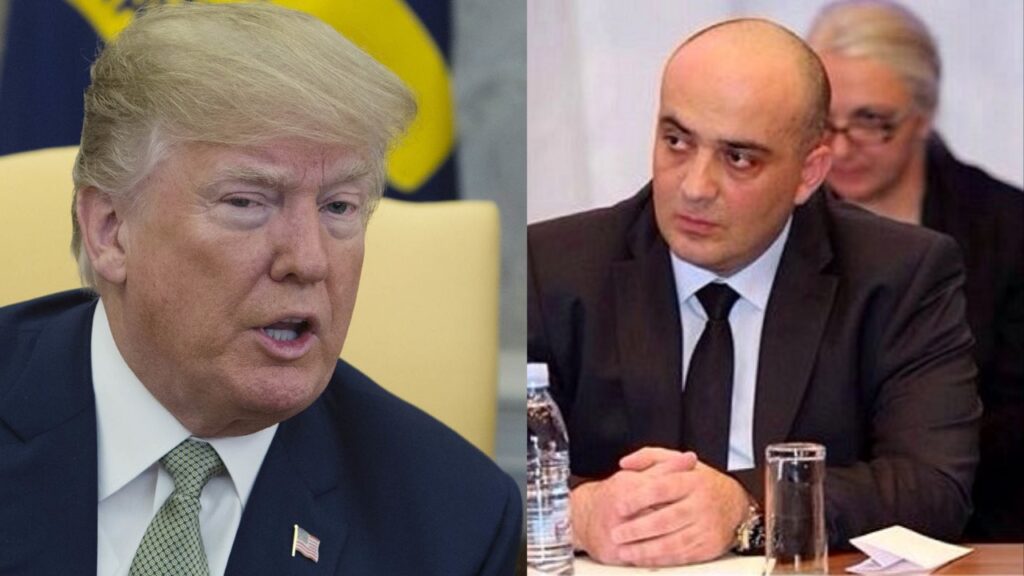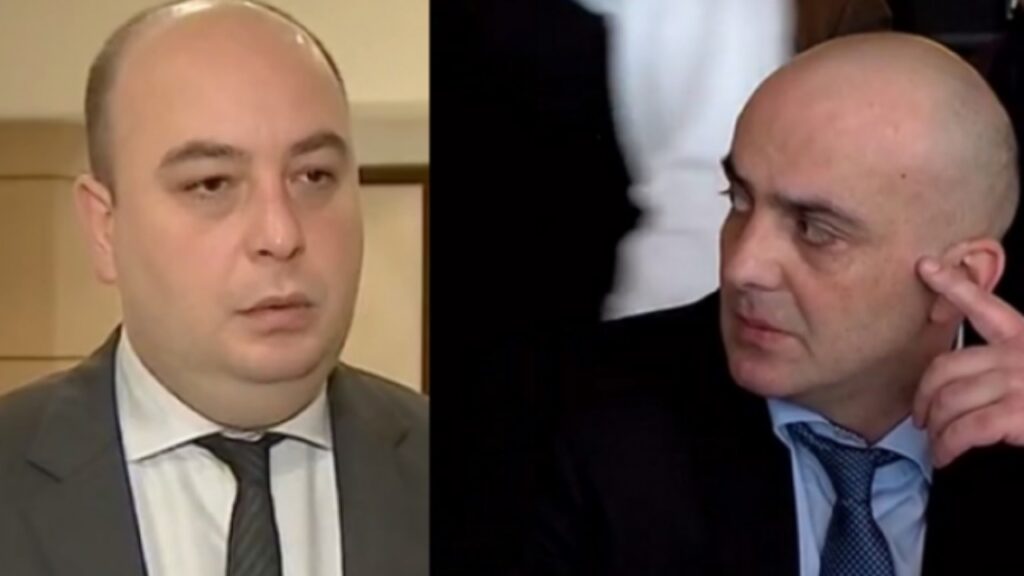Former Georgian Prosecutor General Otar Partskhaladze Hit with U.S. Sanctions
U.S. Sanctions Against Former Georgian Prosecutor General Otar Partskhaladze and Russian Involvement
In recent developments, the United States of America has taken significant action by imposing sanctions against Former Georgian Prosecutor General Otar Partskhaladze, the former Prosecutor General of Georgia. These sanctions have been initiated in response to Partskhaladze’s involvement in business activities and his collaboration with the Russian Federal Security Service (FSB). This article delves into the details of this situation, shedding light on the background of Otar Partskhaladze, the reasons behind the U.S. Sanctions, and the broader implications of such actions.
Who is Otar Partskhaladze?

Former Georgian Prosecutor General Otar Partskhaladze’s brief and controversial tenure as Georgia’s chief prosecutor began on November 7, 2013. However, a number of controversies surrounded his time in this position, which ultimately forced his resignation just 47 days later. One significant issue during his tenure was the accusation of exerting undue pressure on Vano Merabishvili, who was incarcerated at the time.
A key turning point in Partskhaladze’s career was his departure from the Prosecutor General position, which came about due to a scandal related to his previous conviction in Germany. The allegations against him included theft, although he argued that he had been charged with resisting the police rather than theft.
Following his exit from the public sector, Former Georgian Prosecutor General Former Georgian Prosecutor General Otar Partskhaladze transitioned into the business world, establishing close connections with the family of former Georgian Prime Minister Bidzina Ivanishvili.
Otar Partskhaladze’s Connection with Russia
In a significant development, Otar Partskhaladze acquired Russian citizenship in 2022, as substantiated by official documents. This marked a notable shift in his affiliations, raising questions about his connections and activities in Russia. On February 15, 2022, the Russian Ministry of Justice registered a business brokerage company in which Partskhaladze held a significant stake, with ownership of 50% of the shares.
Sanctions Imposed on Former Georgian Prosecutor General Otar Partskhaladze

The U.S. decision to impose U.S. Sanctions on Former Georgian Prosecutor General Otar Partskhaladze is significant in the context of its relationship with Georgia, a strategic ally in the region. This is the second instance of the United States taking such action against Georgian government officials. Previously, on April 5, 2023, the U.S. State Department imposed sanctions on four Georgian judges and their family members. These individuals were barred from entering the United States due to allegations of substantial corrupt activities. U.S. Secretary of State Anthony Blinken cited abuse of their positions as the primary reason for these sanctions.
Understanding the Reasons Behind the Sanctions
The sanctions against Former Georgian Prosecutor General Otar Partskhaladze and Alexander Onishchenko, a Russian intelligence officer, are not isolated measures. They are part of a broader strategy aimed at curbing the influence of certain individuals and entities in the context of geopolitical tensions, particularly the ongoing conflict in Ukraine.
The Georgian-Russian Oligarchy Label

The U.S. State Department, as reported by the American news agency Associated Press, has labeled Otar Partskhaladze a representative of the Georgian-Russian oligarchy. This characterization underscores the perception that Partskhaladze wields considerable influence and has ties that extend beyond national borders.
Partskhaladze’s Economic Consulting in Russia
Partskhaladze’s engagement in consulting within the economic management sector of the Russian Federation has raised eyebrows in international circles. The U.S. government alleges that he collaborated with the Russian Federal Security Service (FSB) in this capacity, with the objective of exerting influence on Georgian society and politics. Such actions are viewed as detrimental to regional stability and democracy.
Russian Involvement in Partskhaladze’s Citizenship
Alexander Onishchenko, the Russian intelligence officer facing sanctions, is believed to have played a role in assisting Otar Partskhaladze in obtaining a Russian passport and potentially Russian citizenship. This development further complicates the situation, as it suggests a deeper level of cooperation between Partskhaladze and the Russian authorities.
Broader Implications of Sanctions
The sanctions against Otar Partskhaladze and Alexander Onishchenko are part of a larger international effort to limit the Kremlin’s access to technology, financial resources, and financial channels. These measures are designed to prevent potential support for Russian actions in the context of the ongoing conflict in Ukraine.
Global Reach of Sanctions
The sanctions imposed by various states extend beyond just individuals like Partskhaladze and Onishchenko. More than 150 businesses and individuals from Russia, Turkey, the United Arab Emirates, and Georgia have faced such restrictions. These measures collectively aim to create a barrier that limits the Kremlin’s maneuverability on the global stage.
In conclusion, the United States’ decision to impose sanctions on Otar Partskhaladze and Alexander Onishchenko, coupled with the broader international sanctions on numerous entities and individuals, reflects the intricate web of geopolitical dynamics at play. Partskhaladze’s journey from a controversial figure in Georgian politics to a Russian citizen underscores the evolving nature of international relationships and the multifaceted strategies employed by nations to safeguard their interests and regional stability. As the situation continues to develop, it remains essential to monitor the repercussions of these sanctions on both the individuals targeted and the broader geopolitical landscape.








